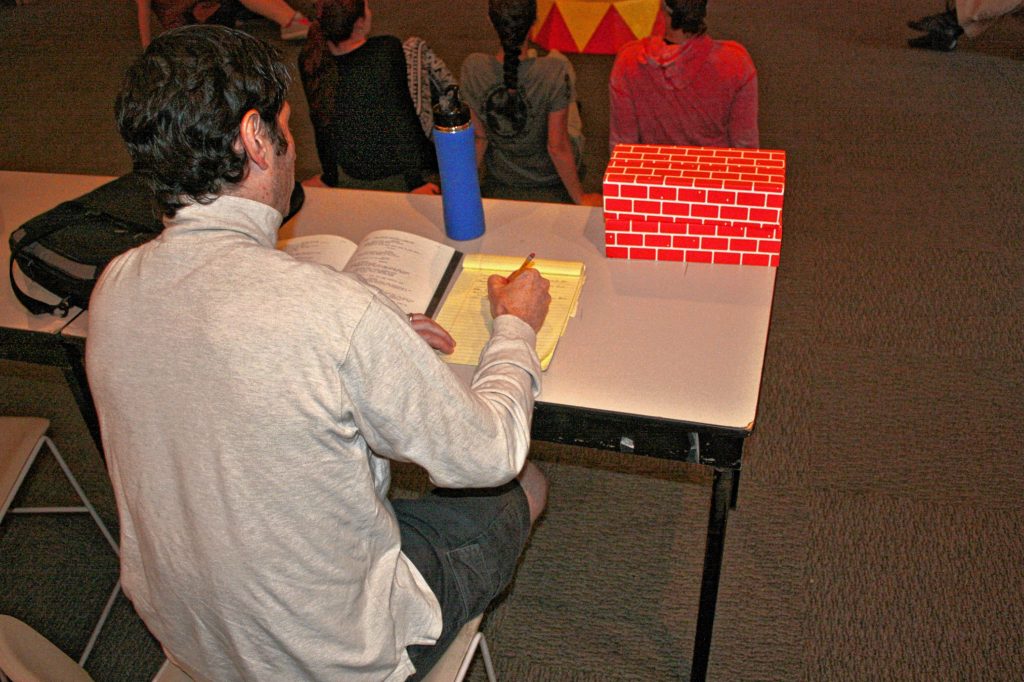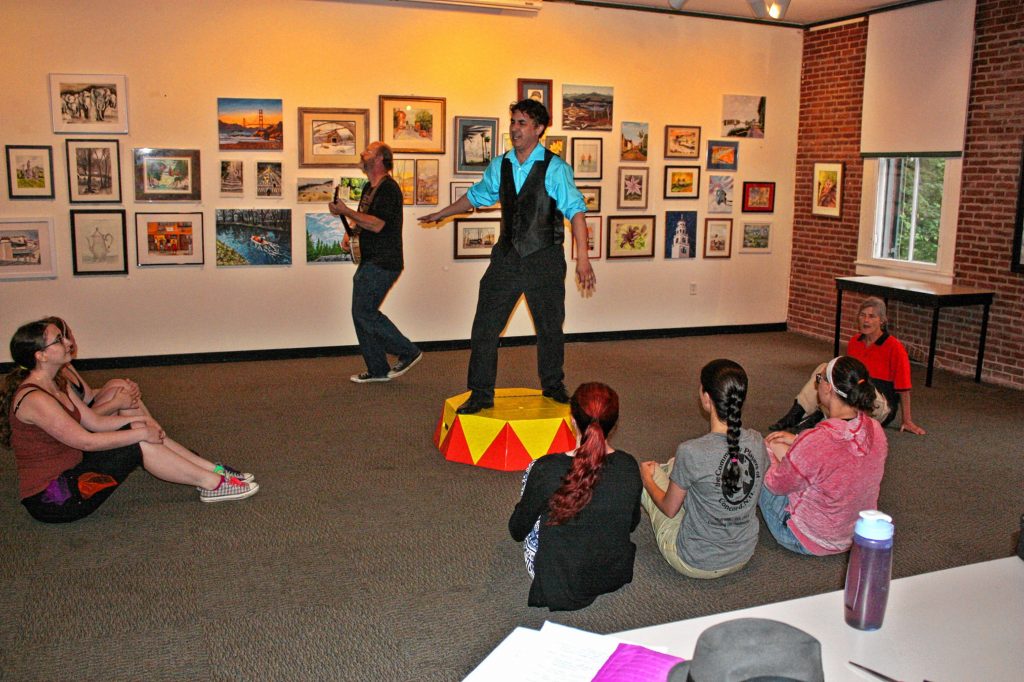Anyone who’s ever been to a play before knows that there are a lot of elements that go into a show – especially if that show is a musical. There’s dialogue, stage directions, choreography, singing, live music, costume changes and all kinds of other things that have to come together for the play to be a success.
We wanted to find out just how much work goes on before the curtains open for a live audience, so we dropped by a rehearsal session for a Hatbox Theatre production of the musical Barnum.
Barnum is a play loosely based on the life of P.T. Barnum, “The Greatest Showman on Earth,” and the cast and crew were at the Kimball Jenkins Estate practicing in anticipation of Friday’s opening night at Hatbox. We caught up with lead actor Marc Murai and director Bryan Halperin before the rehearsal to find out from the pros what goes into a rehearsal, and why they’re so important.
“I’ve only been performing in musicals since moving out here 10 years ago, so that’s a lot different from rehearsing a straight play,” said Murai, who grew up in a suburb of Los Angeles. “With a musical, you’re not only learning lines but you have songs to sing, choreography to learn.”
Murai has been acting since the seventh grade, and the role of Phineas Taylor Barnum holds special significance for him.
“I saw this play when I was a kid and decided this is what I want to do for the rest of the my life,” he said.
The role requires some special skills, such as juggling and tightrope-walking, but since he’s had his heart set on this role since childhood, he learned those skills long ago, hoping to one day put them to use in the play.
Other shows he’s done have similarly required special training.
“I just finished playing Don Lockwood in Singin’ in the Rain, and that was by far the most challenging role I’ve ever played because I had to learn how to tap dance,” he said. “Literally, I would spend three to four hours every day by myself just practicing my tap dancing. That was outside our regular rehearsal.”
For Barnum, the crew practices three times a week for about three hours a session.
On the directorial side, rehearsal is important because it’s really the only time the mastermind of the show gets to impart his influence and vision on the production.
“Even before rehearsals, the director has to come up with some style to present the show based on the script,” Halperin said. “Then the first step is conveying that to the team . . . Once rehearsals start and you’ve got your cast on that page, the next step is to help each actor evoke their character.”
One way of doing that is by taking notes. During a rehearsal, Halperin watches closely, pen and paper in hand, and makes notes of things he likes or suggestions he has. Then, he shares those notes with the actors so they can try to work on certain things.
“A good director will have ideas of their own but also see what the actors are offering themselves and kinda melt the two together,” he said.
Barnum will be performed at Hatbox Theatre through July 30 on Fridays and Saturdays at 7:30 p.m. and Sundays at 2 p.m., with special shows this Saturday at 2 and July 27 at 7:30. For more info, go to hatboxnh.com.










